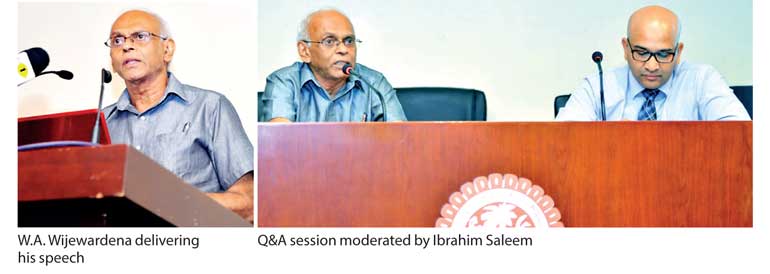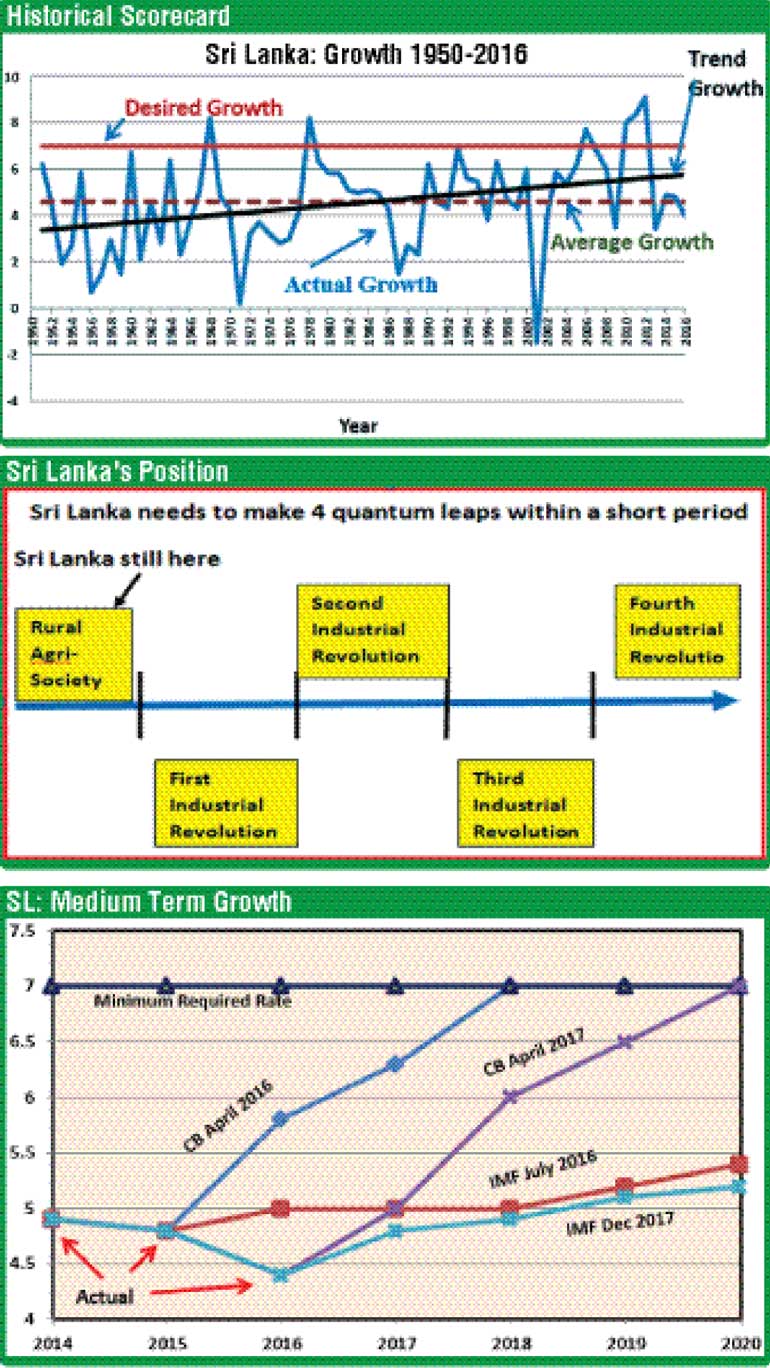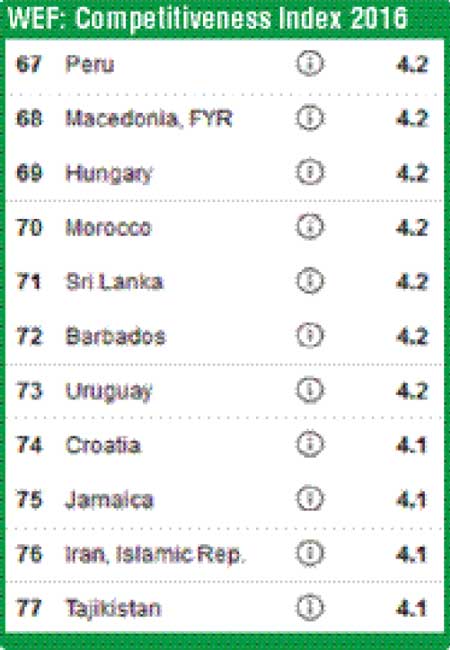Sunday Feb 22, 2026
Sunday Feb 22, 2026
Wednesday, 21 June 2017 00:00 - - {{hitsCtrl.values.hits}}
 The Chartered Institute of Logistics and Transportation (CILT) Sri Lanka’s Logistics Leaders Evening was held on 24 May and featured a lecture titled ‘Sri Lanka’s Competitiveness – A Tiger or a Small Miracle’delivered by former Central Bank Deputy Governor W. A. Wijewardena at the auditorium of the National Chamber of Commerce Sri Lanka in the presence of a large audience.
The Chartered Institute of Logistics and Transportation (CILT) Sri Lanka’s Logistics Leaders Evening was held on 24 May and featured a lecture titled ‘Sri Lanka’s Competitiveness – A Tiger or a Small Miracle’delivered by former Central Bank Deputy Governor W. A. Wijewardena at the auditorium of the National Chamber of Commerce Sri Lanka in the presence of a large audience.
Wijewardena started off by explaining why measuring competitiveness was important for Sri Lanka and advocated several imperatives for the country to move out of the current “middle income trap” towards being a high income nation.
Despite the Government’s projections of a minimum growth of 7% it is likely that Sri Lanka will achieve a growth rate which lies somewhere between 5% and 5.5% until 2020 with the current state of affairs. Some of the key growth imperatives were:
1.Economic reforms on a wide scale
2.Make the private sector move the country forward
3.Introduce measures to improve the productivity and efficiency of using both human and physical capital
4.Create a bigger market for Sri Lankan products
Wijewardena highlighted the example of Singapore’s forward-thinking mindset that allowed a small state to become a global economic powerhouse. A deeper evaluation of the current situation revealed that the biggest reason why Sri Lanka is lagging behind is a need to change our cultural mindset to be more modern and hardworking, to rethink how education is delivered and to leapfrog four cycles of the industrial revolution in order to become relevant.
Wijewardena suggested plan for the way forward included:
1.Take a stock of the state of human capital (un)development and the quality of the facilitating logistical services.
2.Get into an economic policy capsule with the participation of politicians, bureaucrats, academia, and civil society organisations, map out a strategy for developing the talent pool of the country needed by 2025, 2035 and 2045.
3.Sign off the strategy with timebound KPIs to monitor progress, rectify deviations and plan out emerging developments.
His conclusion was that, as it is, Sri Lanka was neither a Tiger nor a Small Miracle unless a massive reform program was implemented with consistency, consensus, dedication and commitment.Wijewardena’s full presentation is available with the CILT Secretariat and those interested may contact it.

